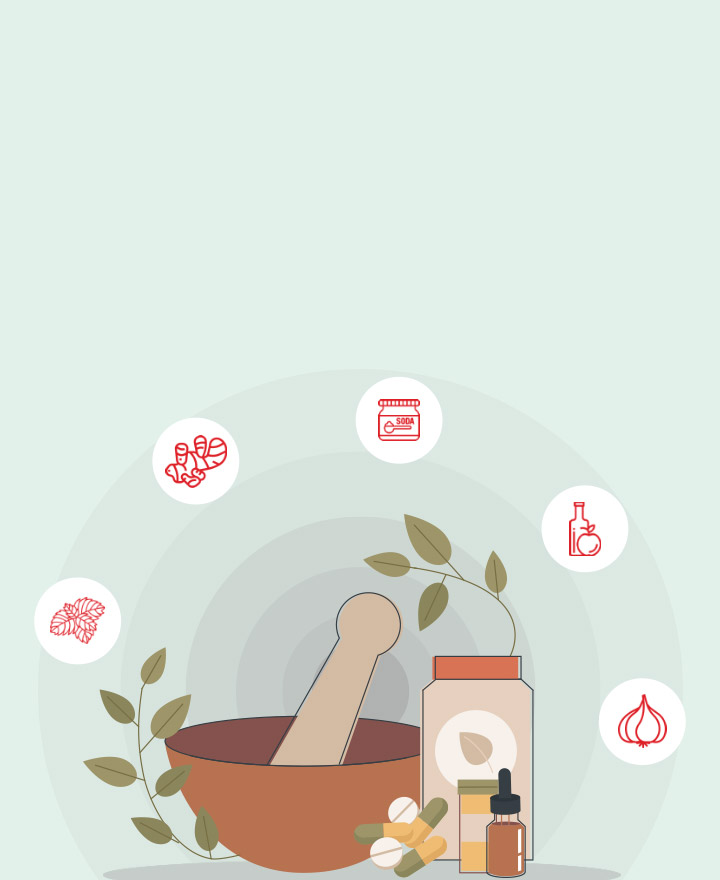

Home Remedies for Varicose Veins
Varicose veins that result due to weakened vessels could cause discomfort for some people. The appearance and severity of this health condition may make people embarrassed and frustrated. Varicose veins can be treated effectively. However, seeking timely medical intervention for early diagnosis and treatment is wiser. Let’s look at some home remedies for varicose veins and how they can effectively help you manage this condition.
Home Treatment for Varicose Veins
Tips for relieving varicose veins at home include:
1. Exercising for Better Circulation
• Regular exercise promotes improved blood circulation in the legs.
• Low-impact exercises like swimming, yoga, walking, and cycling are effective and reduce blood pressure, a contributing factor to varicose veins.
2. Compression Stockings
• Available at pharmacies, compression stockings apply pressure to the legs, aiding muscle and vein function.
• Studies show knee-high compression stockings with 18-21 mmHg pressure can reduce pain and aching related to varicose veins.
3. Non-Restrictive Clothing
• Wearing loose-fitting clothes prevents blood flow restriction and improves circulation.
• Opting for flat shoes instead of high heels can also benefit varicose veins in the legs.
4. Elevate Legs for Improved Circulation
• Keeping legs elevated at or above heart level reduces pressure in leg veins and facilitates smooth blood flow back to the heart.
• This is particularly important during extended periods of sitting, such as work or rest.
5. Gentle Massage
• Massaging affected areas promotes blood movement in the veins.
• Use massage oils or moisturisers, avoiding direct pressure on veins to prevent damage.
6. Avoid Sedentary Behaviour
• Reducing sedentary behaviour minimises varicose vein appearance and prevents occurrences.
• Take breaks, move around, and avoid sitting with crossed legs to maintain smooth blood flow.
7. Weight Management
• Losing excess weight alleviates pressure on veins, reducing swelling and discomfort associated with varicose veins.
8. Salt Intake Reduction
• Decreasing consumption of salty foods minimises water retention, easing pressure on veins.
• High-potassium foods like almonds, lentils, and leafy vegetables can help reduce water retention.
9. Include Flavonoid-Rich Foods
• Foods containing flavonoids improve blood circulation, reducing the likelihood of blood pooling in veins.
• Include horse chestnuts, onions, bell peppers, citrus fruits, cocoa, and garlic in the diet.
10. Herbal Remedies — Grape Seed Extract
• Grape seed extract may help reduce swelling and symptoms of chronic venous insufficiency.
• Caution: Avoid taking grape seed extract if you take blood-thinning medication to prevent interactions and increased bleeding.
Conclusion
If varicose veins progress to a severe stage, consult your doctor immediately. Your healthcare practitioner can advise home remedies for any stage. If you are at the critical stage of this health condition and seeking financial assistance, you can opt for health insurance that would cover all your medical expenses.
One of the important components of our overall wellness is also being financially secured. Healthcare emergencies can happen any time, but a good health insurance policy can protect you from such uncertain situations. To know more about Wellness and other health related tips, visit the Wellness Corner.
Source: medicalnewstoday
Disclaimer: This blog provides general information and discussions about health and related subjects. The information and other content provided in this blog, website or in any linked materials are not intended and should not be considered, or used as a substitute for, medical advice, diagnosis or treatment. Kindly contact your Doctor before starting a new medicine or health regime.
Related Articles
Symptoms and Causes of Varicose Veins
What is obesity & Overweight. Causes & Symptoms
Obesity And Top 10 Health Risks Associated With It
Diabesity – Find Out How Obesity Is Related To Diabetes
Symptoms and Causes of Flat Foot
Published on January 24, 2024














 Health Insurance
Health Insurance  Travel Insurance
Travel Insurance  Car Insurance
Car Insurance  Cyber Insurance
Cyber Insurance  Critical Illness Insurance
Critical Illness Insurance
 Pet Insurance
Pet Insurance
 Bike/Two Wheeler Insurance
Bike/Two Wheeler Insurance  Home Insurance
Home Insurance  Third Party Vehicle Ins.
Third Party Vehicle Ins.  Tractor Insurance
Tractor Insurance  Goods Carrying Vehicle Ins.
Goods Carrying Vehicle Ins.  Passenger Carrying Vehicle Ins.
Passenger Carrying Vehicle Ins.  Compulsory Personal Accident Insurance
Compulsory Personal Accident Insurance  Travel Insurance
Travel Insurance  Rural
Rural